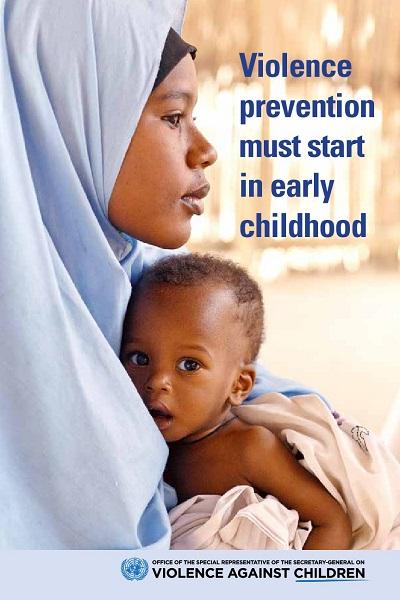Violence prevention must start in early childhood

Ending violence in children’s lives and investing in early childhood are first and foremost a question of children’s rights, further supported by scientific evidence which shows that a violence-free early childhood matters: the first 1,000 days of a child’s life are the foundation for a person’s whole future development. Violence in early childhood is a stressful, painful experience for a child in the immediate term, with the further risk of midand long-term consequences. The optimum physical, intellectual and socio-emotional potential of children depends on receiving loving care and enjoying a nurturing environment from the very start.
Scientific research shows that early childhood stress - including exposure to violence - compromises children’s development, health and education,
with long-term negative mental and physiological consequences. Neuroscience advances have vastly increased our understanding of how a
child’s early brain development can be impacted by exposure to violence. Violence can alter the developing brain’s structure and function which
can impact language acquisition and cognitive functioning, resulting in social and emotional competency deficits and generating fear, anxiety,
depression and the risk of self-harm and aggressive behaviour.
Download the publication
Spanish version

